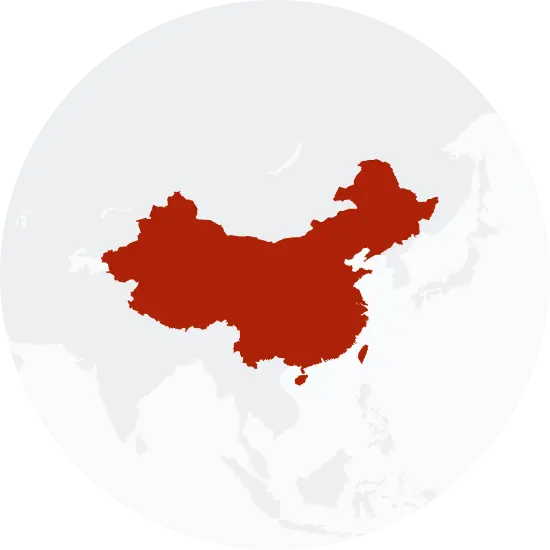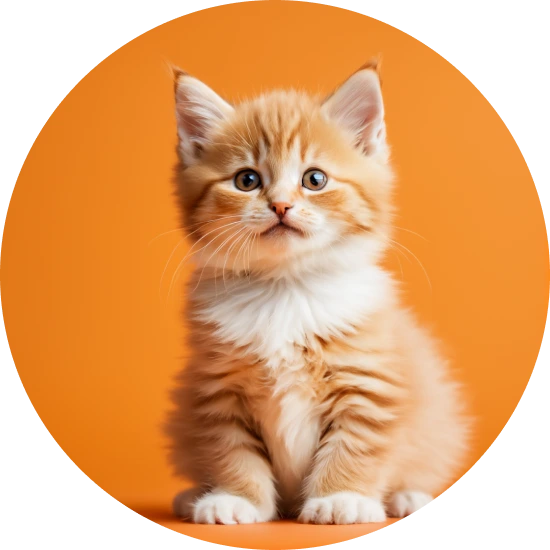Explore the Family Name Mui
How common is the last name Mui in the United States?
Based on data from the Decennial U.S. Census, the surname "Mui" had an increase in popularity between 2000 and 2010. In 2000, it ranked 8916th in popularity, but by 2010, it moved up to 8743rd, an improvement of 1.94 percent. The number of individuals carrying the Mui surname also expanded over this decade, growing from 3376 to 3752, a rise of 11.14 percent. Consequently, the proportion of this surname per 100,000 people slightly increased from 1.25 to 1.27.
| 2000 | 2010 | Change | |
|---|---|---|---|
| Rank | #8,916 | #8,743 | 1.94% |
| Count | 3,376 | 3,752 | 11.14% |
| Proportion per 100k | 1.25 | 1.27 | 1.6% |
Race and Ethnicity of people with the last name Mui
Ethnicity data from the Decennial U.S. Census reveals that the majority of individuals with the surname "Mui" identify as Asian/Pacific Islander, accounting for 92.45 percent in 2000 and slightly growing to 92.64 percent in 2010. Those identifying with two or more races slightly decreased from 2.04 percent to 1.95 percent. The percentage of those who identified as White declined by 8.65 percent, while the Hispanic population saw an increase of 27.88 percent. Interestingly, no data was reported for those identifying as Black or American Indian and Alaskan Native in 2010.
| 2000 | 2010 | Change | |
|---|---|---|---|
| Asian/Pacific Islander | 92.45% | 92.64% | 0.21% |
| White | 3.7% | 3.38% | -8.65% |
| Two or More Races | 2.04% | 1.95% | -4.41% |
| Hispanic | 1.04% | 1.33% | 27.88% |
| Black | 0.77% | 0% | 0% |
| American Indian and Alaskan Native | 0% | 0% | 0% |
Mui ancestry composition
23andMe computes an ancestry breakdown for each customer. People may have ancestry from just one population or they may have ancestry from several populations. The most commonly-observed ancestry found in people with the surname Mui is Chinese, which comprises 77.1% of all ancestry found in people with the surname. The next two most common ancestries are Chinese Dai (9.8%) and Vietnamese (3.8%). Additional ancestries include Korean, British & Irish, Filipino & Austronesian, Indonesian, Thai, Khmer & Myanma, and Angolan & Congolese.
Ready to learn more about your ancestry? Get the most comprehensive ancestry breakdown on the market by taking our DNA test. Shop 23andMe
| ANCESTRY BREAKDOWN | COMPOSITION |
|---|---|
| Chinese | 77.1% |
| Chinese Dai | 9.8% |
| Vietnamese | 3.8% |
| Other | 9.2% |

Possible origins of the surname Mui
Your DNA provides clues about where your recent ancestors may have lived. Having many distant relatives in the same location suggests that you may all share common ancestry there. Locations with many distant relatives can also be places where people have migrated recently, such as large cities. If a large number of individuals who share your surname have distant relatives in a specific area, it could indicate a connection between your surname and that location, stemming from either recent ancestral ties or migration.
Based on 23andMe data, people with last name Mui have recent ancestry locations all within China.
| RECENT ANCESTRY Location | Percentage |
|---|---|
| Guangdong, China | 89.40% |
| Zhejiang, China | 87.90% |
| Shanghai, China | 87.90% |
| Shandong, China | 86.40% |
| Hunan, China | 86.40% |
What Mui haplogroups can tell you
Haplogroups are genetic population groups that share a common ancestor on either your paternal or maternal line. These paternal and maternal haplogroups shed light on your genetic ancestry and help tell the story of your family.
The top paternal haplogroup of people with the surname Mui is O-F2415, which is predominantly found among people with East Asian & Indigenous American ancestry. Haplogroup O-F2415 is descended from haplogroup O-M1359. Other common haplogroups include E-M183 and O-F2859, which are predominantly found among people with European and East Asian & Indigenous American ancestry.
The most common maternal haplogroups of people with Mui surname are: N, D4, M7b. These most commonly trace back to individuals of East Asian & Indigenous American and European ancestry.
 Paternal Haplogroup Origins O-M1359
Paternal Haplogroup Origins O-M1359
Your paternal lineage may be linked to the Cham
One of the many populations harboring members of haplogroup O1b1a1a1a1 is the Cham ethnic group, a group of people who speak Austronesian languages in Mainland Southeast Asia. Austronesian languages make up a language family that is extremely large and widespread, comprising over 350 million people on islands such as Madagascar, Easter Island, and many others. However, Austronesian languages are less common on mainland Asia, with a notable exception being the Chamic language. Research suggests that ancestors of the Cham people migrated from Southeast Asian islands to the mainland around the year 500 BCE, and that early Cham populations quickly began mixing with indigenous southern Vietnamese populations. As a result, the Chamic language now has words that were borrowed from languages spoken by indigenous Vietnamese people. It is likely that an ancestral Kinh population was one of the populations that mixed with the Cham people shortly after their migration to mainland Asia.
Your maternal lineage may be linked to the Han
Members of haplogroup D are found in both northern and southern Han Chinese populations at low to moderate frequencies. The Han people, who all share the same language and similar cultural practices, are the largest ethnic group in the world, with about 1.2 billion people. Historical evidence shows that Han people are descendants of the ancient Huaxia tribes that come from northern China, and Han language and culture only expanded into southern China in the last 2,000 years. The spread of Han people and culture from northern to southern China was likely driven by warfare and famine in the north.

What do people with the surname Mui have in common?
Spoiler alert: it's complicated. People with the same last name are usually no more genetically similar than a randomly sampled group of people from the same population. That said, people with the same surname are more likely to have similar ancestries than randomly sampled individuals. The reason is the tendency of people with similar cultural or geographical backgrounds to preferentially mate with one another. That's why people who share a surname may be more likely to share traits and tendencies in common than people within the general population. Check out the percentages below to see the prevalences of tastes, habits, and traits of people with your surname compared with prevalences among 23andMe users.
Preferences
Traits

Cheek Dimples
Small indentations that appear on the cheeks when a person smiles.
"Mui" Surname 37.0%
23andMe Users 37.6%
Habits

Sugary Drink
Drinks one or more sugary drinks per day.
"Mui" Surname 30.8%
23andMe Users 21.1%
Wellness
Are health conditions linked to the last name Mui?
The short answer is that, if there is an association between surname and health, it's usually more about your ancestry than your name. Individuals with a given surname are no more genetically similar than the general population but often have similar ancestries. The populations of people associated with those shared ancestries often have sets of genetic variations, also known as alleles, in common. Some of those alleles are associated with a greater likelihood of developing certain diseases.
Disease variant frequency by ancestry
Disease allele frequencies in populations associated with the surname Mui are shown below. Important Note: not everyone with a disease allele will develop these health condition




